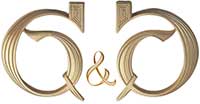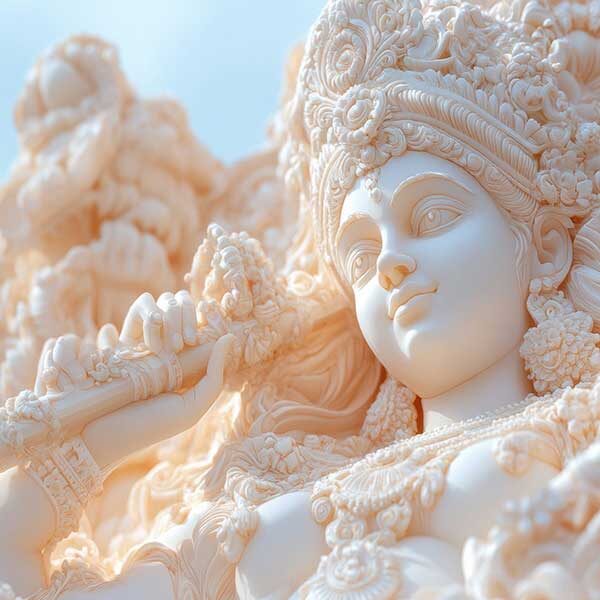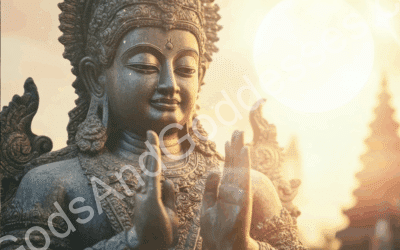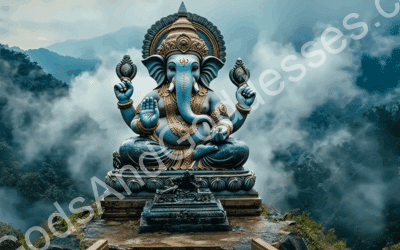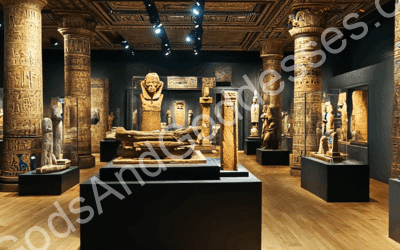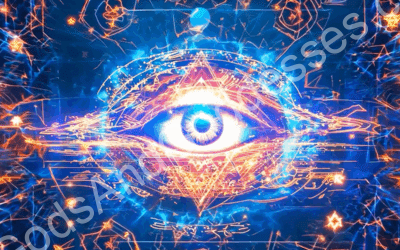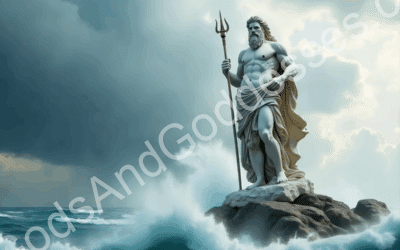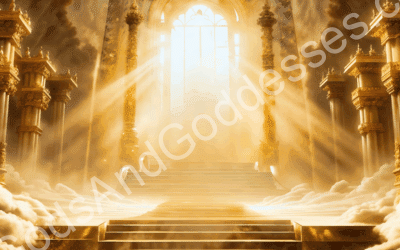Receive Our Newsletter
Resources and reminders to
live your Divine Destiny™
Introduction: The Enduring Power of the Gods
Across every culture and age, gods have stood as symbols of creation, destruction, wisdom, and mystery; they are the shapers of myth, the keepers of justice, and the forces behind thunder, sun, sea, and sky.
“From the storm-wielding Zeus of Greece to the all-seeing Odin of the Norse, from the radiant Ra of Egypt to the earth-rooted Dagda of the Celts, gods reveal how humanity has always sought to understand the divine.”
At GodsAndGoddesses.com, we explore these timeless figures in the wider context of mythology and alongside goddesses, showing how they form part of a universal language of symbols, stories, and rituals. Here you’ll find not only the gods themselves, but also the archetypes they represent—creator, trickster, warrior, protector—and the lessons they continue to offer in modern life.
Key Takeaways About Gods in Mythology
-
Gods embody archetypal forces—creation, wisdom, war, love, and the cycles of life and death.
-
Pantheons such as the Norse Æsir, Greek Olympians, and Egyptian deities reflect the values and mysteries of their cultures.
-
Symbols like the ankh, trident, or lightning bolt condense vast meaning into simple, powerful imagery. Learn more in God Symbols.
-
Stories of gods carry enduring lessons about sacrifice, power, justice, and destiny. Explore more in Stories About Gods.
-
Ancient worship practices, from sacrifices to festivals, offer insight into how humans connected with the divine—and how those rituals influence spirituality today. See God Worship and Rituals.
Explore God Categories
-
List of God Names → Discover gods from across cultures, from Olympians to Egyptian deities, and explore what their names mean.
-
Gods by Mythology → Learn how pantheons of gods shaped Greek, Norse, Celtic, Egyptian, and other traditions.
-
Types of Gods → Explore archetypes such as sky gods, underworld rulers, and trickster deities.
-
God Symbols → Understand the sacred imagery tied to gods, from the thunderbolt to the trident.
-
Stories About Gods → Relive the great myths, from Odin’s sacrifice to Ra’s creation of the world.
-
God Worship and Rituals → Discover how ancient peoples honored their deities—and how their practices inspire devotion today.
The Power and Purpose of Gods in Mythology
From thunderous sky fathers to tricksters who reshape worlds, gods have always stood at the center of myth and culture. They are creators, destroyers, protectors, and teachers—embodiments of humanity’s greatest fears and highest ideals.
Who Are the Gods of Mythology?
Gods appear in nearly every tradition, each with unique domains and personalities:
-
Sky gods command storms, sun, and stars.
-
Underworld gods rule death and the afterlife.
-
Sea gods stir oceans and floods.
-
War gods guide warriors and battles.
-
Creator gods bring forth life and order from chaos.
See also: Types of Gods.
Gods Across Cultures
Greek Gods
-
Zeus – king of the gods, wielder of the thunderbolt.
-
Poseidon – ruler of the sea and earthquakes.
-
Hades – lord of the underworld.
See more: Greek God Names.
Celtic Gods
-
Dagda – father god of wisdom, strength, and abundance.
-
Lugh – warrior of many talents, linked to sun and skills.
-
Cernunnos – horned god of nature and fertility.
See more: Celtic Gods.
Norse Gods
-
Odin – all-father of wisdom, magic, and war.
-
Thor – thunder god, protector of Midgard.
-
Tyr – god of justice and sacrifice.
See also: Norse Gods.
Egyptian Gods
-
Ra – sun god, creator of life.
-
Osiris – lord of the afterlife and resurrection.
-
Horus – sky god, protector of kings.
See more: Egyptian Gods.
Archetypes and Roles of Gods
Gods often embody recurring roles across cultures:
-
The Sky Father – Zeus, Odin, Ra.
-
The Fertility Lord – Cernunnos, Osiris, Freyr.
-
The Trickster – Loki, Hermes, Coyote.
-
The Warrior – Ares, Tyr, Kartikeya.
-
The Judge of Souls – Osiris, Hades, Yama.
See also: Stories About Gods.
Symbols of the Gods
Sacred signs reveal divine attributes:
-
Thunderbolt – Zeus’s weapon of power.
-
Ankh – symbol of eternal life in Egypt.
-
Trident – wielded by Poseidon and Shiva.
-
Mjölnir – Thor’s hammer, a symbol of protection.
See more: God Symbols.
Worship and Rituals of the Gods
From massive temples to simple offerings, gods have been honored in countless ways:
-
Greek temples – sacrifices of animals and wine to the Olympians.
-
Norse Blót – feasts and offerings to Odin, Thor, and the old gods.
-
Egyptian rituals – daily temple service to Ra, Isis, and Osiris.
-
Modern practices – neo-pagan rituals, ancestor offerings, and cultural revivals.
See also: God Worship and Rituals.
The Place of Gods in the Larger Mythological Story
While gods stand as powerful archetypes, they are only part of the picture. To understand their role fully, see how they fit within the broader framework of Mythology and explore their divine counterparts in Goddesses. Taken together, these resources show how myths weave a complete vision of creation, power, and meaning.
FAQs About Gods
Are gods the same as spirits or demi-gods?
No. Spirits and demi-gods may share qualities with gods, but gods generally hold broader cosmic domains and higher status.
Are gods still worshipped today?
Yes. Hindu, Shinto, and various Indigenous traditions continue to actively honor gods, while many deities are also venerated in neo-pagan and modern practices.
Do gods from different cultures overlap?
Often. For example, Zeus and Jupiter share many traits, while Norse Thor and Hindu Indra are both storm gods wielding thunderbolts.

Conclusion
Gods embody humanity’s imagination of divine power. They are creators, rulers, and destroyers—figures who reflect both cosmic forces and human concerns. Whether Zeus with his thunderbolt, Odin with his wisdom, or Ra with his sun-disk, gods remain timeless anchors of myth.
Explore further:
“The gods endure because they are not only divine—they are mirrors of humanity’s highest ideals and deepest fears.”
Posts About Gods
List of God Names: Ancient Deities from Mythology and Religion
Across cultures, the names of gods carry immense power. From Zeus and Odin to Ra and Quetzalcoatl, these names were invoked for worship, protection, and cultural identity. Each one holds meaning tied to its mythology, acting as a doorway into tradition and belief.
Gods by Mythology: Deities from Norse, Celtic, Greek, and More
Every culture has imagined gods in its own image—deities who reflect the land, the people, and the mysteries of existence. From the thunder-wielding Norse god Odin to the radiant Greek god Zeus, from the earth-rooted Celtic god Dagda to the sun-sovereign Egyptian god Ra, these figures embody humanity’s search for meaning, justice, and cosmic order.
Types of Gods: Creator, Sky, War, and Underworld Deities
From creators who shaped the cosmos to sky lords, underworld rulers, and tricksters, gods appear across cultures in recognizable archetypes. These types help us see patterns in how humanity has understood divinity, power, and cosmic order.
God Symbols: Sacred Signs of Power, Wisdom, and Protection
Throughout history, gods have been remembered not only through myths and rituals but also through symbols—powerful images that capture their essence in a single form. A lightning bolt in Zeus’s hand, the trident of Poseidon, or the Egyptian ankh all carry layers of meaning, connecting mortals to the divine through visual shorthand.
Stories About Gods: Myths and Legends of Divine Powers
Gods live on not only through temples and symbols, but also through the stories that define them. Myths of Zeus’s thunderbolts, Odin’s sacrifice, or Ra’s creation of the sun reveal how humans made sense of destiny, justice, and power.
God Worship and Rituals: Ancient Practices and Modern Devotion
Throughout history, gods have been honored with rituals ranging from grand festivals to intimate daily offerings. These practices revealed how people sought favor, protection, or wisdom from the divine powers they revered.
- Odin God Story - August 24, 2025
- The Story of Ra: Egyptian Sun God and Creator - August 24, 2025
- Kraken: Mythological Sea Monster of the Deep - August 24, 2025
